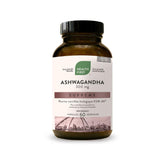What is a dietary supplement?
A dietary supplement is used to address a specific nutrient deficiency. For example, if a person is deficient in iron, calcium, or vitamin D, a supplement is recommended to restore the body's levels of that nutrient. They are often prescribed by a healthcare professional after a deficiency diagnosis is confirmed by medical tests.
When to use a supplement : A supplement is recommended when a deficiency is diagnosed, such as to treat anemia due to iron deficiency, or vitamin D deficiency in people living in areas with little sunlight. They help restore optimal levels of a nutrient essential for the body's proper functioning.
Recommended product :
- Sisu Iron 25 mg – Ideal for addressing iron deficiency, often prescribed after diagnosis of anemia.
- Sisu Vegan Vitamin D3 – An excellent choice to compensate for a lack of vitamin D, especially in winter.
What is a dietary supplement?
A dietary supplement is intended to enrich the diet and support certain bodily functions. Unlike supplements, they are not specifically used to treat a deficiency but to optimize health, improve energy, or support the immune system.
When to use a supplement : Supplements are often used in specific situations, such as to boost immunity, improve digestion, or increase energy. For example, athletes often take supplements to enhance their performance, while others may take supplements to manage stress or anxiety.
Recommended product :
- Sisu Super B Vitamin Blend – A perfect supplement to support energy levels and aid in stress management.
- Natural Factors Biocoenzymated Riboflavin 5 Phosphate – A vitamin B2-rich supplement to improve energy production and metabolism
When to choose a supplement?
Dietary supplements are recommended in specific cases where a nutrient deficiency has been identified or when nutrient needs are increased. Here are some situations where a supplement is appropriate:
- Confirmed deficiency : A supplement is often necessary when medical tests reveal a deficiency in iron, calcium, vitamin D, or other essential vitamins and minerals.
- Pregnancy : Pregnant women often need iron and folic acid supplements to support fetal growth and prevent complications related to anemia.
- Heavy periods : Women who have heavy periods can lose a significant amount of iron, making it necessary to take iron supplements to prevent anemia.
- Restrictive diets : People on vegan or other restrictive diets may need vitamin B12 or calcium supplements, as these nutrients are less abundant in plant-based foods.
Example : A pregnant woman may need iron supplements to meet her increased needs, as pregnancy doubles the demand for iron to support the developing baby.
When to choose a supplement?
Dietary supplements are used to optimize health and support certain bodily functions without necessarily correcting a deficiency. Here are some cases where a dietary supplement is recommended:
- Supporting athletic performance : Athletes or people who engage in intense physical activity often take supplements to improve muscle recovery, increase their endurance or optimize their performance (e.g., protein, BCAAs).
- Boost immunity : Supplements with vitamin C, D, zinc, or echinacea are commonly used to support the immune system and prevent illness, especially during the winter.
- Stress management : Certain supplements such as magnesium or vitamin B complexes can help reduce stress and promote better emotional management.
Example : Athletes use supplements like plant-based proteins or BCAAs to improve recovery after exercise and increase their performance during training.
Supplements and supplements: What regulations?
In Canada, dietary supplements are governed by specific regulations to ensure their safety and quality. Dietary supplements are often prescribed by a doctor when a deficiency is confirmed. They are classified as natural health products (NHPs) and must be approved by Health Canada before being marketed. Each product must bear a Natural Product Number (NPN) which attests to its effectiveness and safety.
On the other hand, dietary supplements , used to enrich the diet or support certain bodily functions, are freely available over the counter. They do not require a prescription and can be purchased online or in stores. However, they must also meet strict Health Canada standards, which ensure their composition is safe and they do not contain prohibited substances.
On the La Boite à Grains website , customers can easily review product ingredients to ensure they meet their specific needs. All available supplements are certified, and products like multivitamins, probiotics, and immunity supplements meet Canadian quality and certification standards. This ensures consumers make informed choices while benefiting from safe and effective products.
For more details, you can discover the products available on La Boite à Grains , where you will find quality supplements for all your health needs.
What is the difference between a supplement and a vitamin?
A supplement is a product that may contain one or more nutrients (vitamins, minerals, amino acids, etc.) to fill deficiencies or supplement a diet. A vitamin is a type of essential nutrient that the body cannot produce in sufficient quantities and can be provided through food or supplements.
Is it better to get vitamins from supplements or from food?
It is generally best to obtain vitamins from food , as foods provide a balanced mix of nutrients and other beneficial compounds. However, in some cases of deficiency, supplements may be necessary to meet specific needs, under medical supervision.
Conclusion
The main difference between supplements and supplements lies in their function. Supplements are designed to address a specific nutrient deficiency, such as iron, vitamin D, or calcium, and are often prescribed by a healthcare professional after diagnosis. Supplements , on the other hand, are used to enrich the diet and support specific bodily functions, such as immunity, energy, or digestion, without aiming to correct a specific deficiency. They are freely available and can be taken preventatively or to optimize health.
About the author
Naturopaths of La Boite à Grains
Team of qualified and certified naturopaths (ND) in Gatineau in Outaouais.













